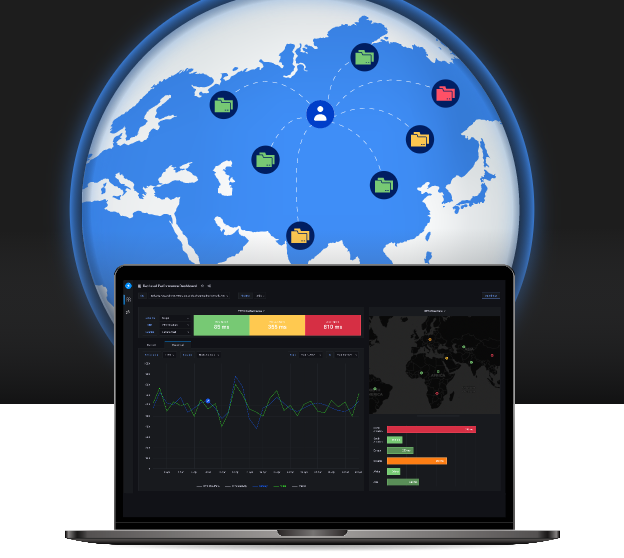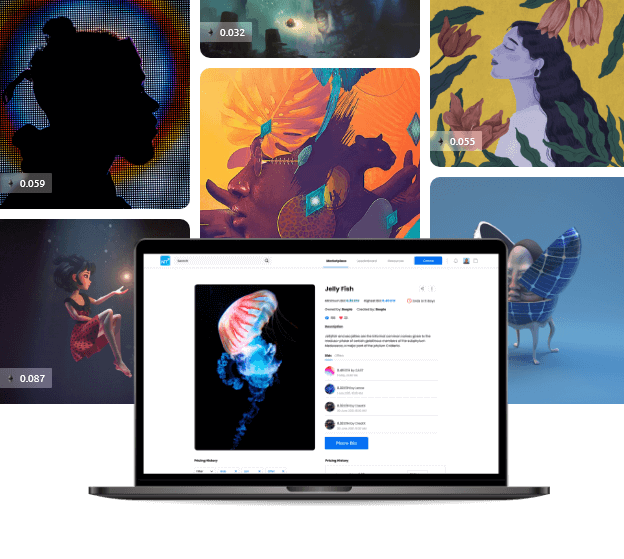NFT Storage Solution
Our NFT storage system, built specifically for storing off-chain NFT data, helps creators and NFT marketplace owners store data in a decentralized way on IPFS.

Trusted By Leading Enterprises


Empower Your Distributed Web With
Our IPFS Based Nft Storage
Our ready-to-use NFT storage system provides the simplest way to upload and manage files in IPFS. The user-friendly interface combined with our IPFS API makes our NFT Storage platform the most convenient to work.
Features of Our NFT Storage Platform

Pin Manager
Our easy-to-use Pin manager enables you to view, manage and grab your IPFS files conveniently.

File Infrastructure for NFTs
Our NFT Storage system provides secure and verifiable files for your NFTs. Whether you’re a creator, platform owner or collector, you need to upload through our NFT storage system, copy your IPFS CID and attach your NFT before minting.

Easy API
With our developer-friendly, documented API endpoints, you can pin anything you want over IPFS.

View Content Faster
Spin your IPFS gateways with custom domains and work with greater speed.

Store
Simply upload your data and save the IPFS hash of the content (CID) that is used in on-chain NFT data as a pointer to the content. Filecoin is used for the long-term storage of data and ensures that even if our NFT storage is down, NFT data persists.

Retrieve
Our decentralized IPFS network allows easy access to the stored NFT data. CIDs reference immutable content ensuring that the content you’re accessing is the original NFT data. The data is easily accessed via a public IPFS gateway or IPFS command line, or IPFS desktop.
How NFT Storage System Works?

Process of Storing NFTs on Our White-label NFT Storage Platform
Step 1
Register an account to create API access keys
Step 2
Save the generated API access key
Step 3
Choose one of the following methods to store their NFT data
JS Client Library
Install the JS library:
npm install nft.leewayhertz.org
Use the client in Node.js or the browser:
import { NFTStorage, File } from 'nft.leewayhertz.org'
const apiKey = 'USER_API_KEY'
const client = new NFTStorage({ token: apiKey })
const metadata = await client.store({
name: 'PinArt',
description: 'Discover the Art Idea!',
image: new File([/* data */], 'pinart.jpg', { type: 'image/jpg' })
})
console.log(metadata.url)
// ipfs://(Key Value)/metadata.json
Raw HTTP Request
Users would be able to Configure their HTTP client and set the Authorization header:
"Authorization": "Bearer USER_API_KEY"
The user then need to Submit an HTTP POST request to api.nft.leewayhertz.org/upload, passing the file data in the request body. e.g.
curl -X POST --data-binary @pinart.jpg -H 'Authorization: Bearer USER_API_KEY' https://api.nft.leewayhertz.org/upload
Successful requests will receive a HTTP 200 status and application/json response like:
{
"ok": true,
"value": { "cid": "bafy..." }
}
Configure as a Remote Pinning Service
Users can use nft.leewayhertz.org as a remote pinning service in IPFS.
ipfs pin remote service add nft-storage https://api.nft.leewayhertz.org USER_API_KEY
Users can also use the –help option for information on other remote pinning service commands:
ipfs pin remote --help
Who Can Benefit from our NFT Storage Platform?

Service providers
Our IPFS-based NFT storage platform helps service providers to store a large amount of data, slash the bandwidth cost and ensure secure, peer-to-peer content delivery.

Content creators
Our NFT storage system empowered with IPFS allows creators to mint their NFTs and manage and deliver it without intermediary control.

Archivists
Storing archived data on our IPFS-based NFT storage platform enables deduplication, high performance and clustered persistence. It empowers the users to store information as long as they want.

Researchers
Our NFT storage system helps researchers/ developers working with large distributed datasets by allowing them to decentralize archiving, enhance the speed and improve overall performance.

Blockchain developers
Our NFT storage platform works on IPFS content addressing that enables developers to store large files off-chain and put permanent, immutable links in transactions. It allows timestamping and securing content without the necessity to put data on-chain.

Offline users
Many users with poor internet infrastructure face major obstacles with high latency networks. Our peer-to-peer IPFS-based NFT storage platform offers resilient access to data without dependence on latency or backbone connectivity.
Our Blockchain Development Work

Web3: File Retrieval Dashboard
FileCoin Dashboard: A Web3 File Retrieval Network Monitoring Dashboard for the FileCoin Users
A dashboard for the Web3 Content Delivery Network (CDN) that lets Filecoin users stay informed on the performance of the best file retrieval networks. This platform helps to gather and analyze data from several data sources and displays real-time performance indicators on a detailed dashboard that is simple to grasp.


BLOCKCHAIN DEVELOPMENT
Monetary System on the Blockchain

BLOCKCHAIN DEVELOPMENT
NFT Marketplace Solution
We have built a custom ready-to-deploy NFT Marketplace Platform to allow users to launch their own NFT marketplace platform and drive users to convert their unique assets into NFTs. The platform offers seamless options for both technical or non-technical users to buy/sell NFTs.

Request a demo
Looking to launch your NFT storage platform?
Take the first step by contacting us!
Insights
Gaming NFT Marketplace
Gaming NFT marketplaces can make playing a game more pleasurable by facilitating monetization of in-game collectibles through NFTs minting and trading
How NFTs disrupt the music industry
NFTs in music provide promising opportunities for the industry and a wide range of benefits for artists and music enthusiasts. Musicians receive fair compensation for their work, and fans can directly interact with them.
How NFTs can transform the art industry?
NFTs are popularly being used to tokenize digital artworks, and then these NFTs are traded in NFT marketplaces to earn a profit.




